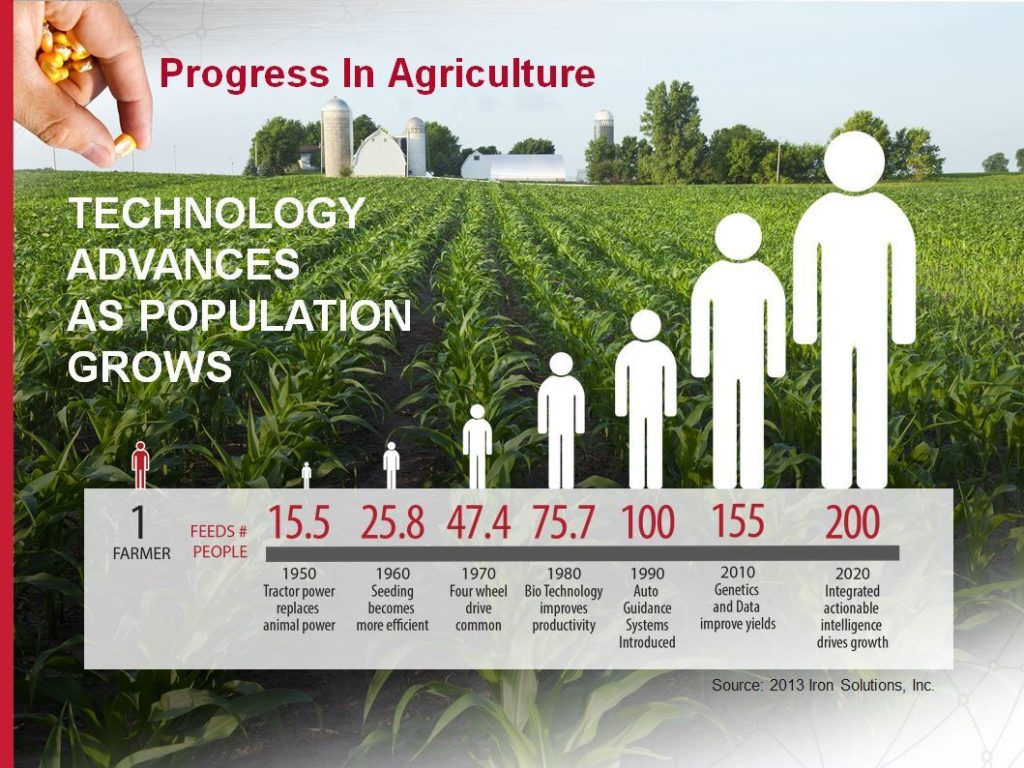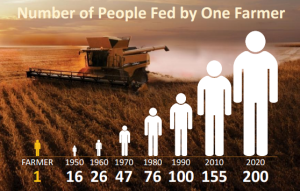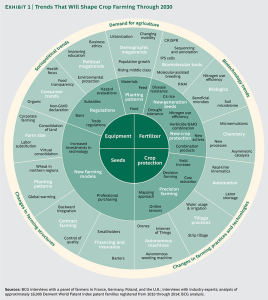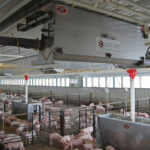The Role of Precision Farming in Meeting the 2050 Food Challenge
By Amanda Wemette Several recent news stories have highlighted a sobering statistic that global food production must increase 50-70 percent by the year 2050 to feed a projected population of 9 billion people[1]. From tech firms and tech investment firms,...

The Role of Precision Farming in Meeting the 2050 Food Challenge
By Amanda Wemette Several recent news stories have highlighted a sobering statistic that global food production must increase 50-70 percent by the year 2050 to feed a projected population of 9 billion people[1]. From tech firms and tech investment firms,...By Amanda Wemette
Several recent news stories have highlighted a sobering statistic that global food production must increase 50-70 percent by the year 2050 to feed a projected population of 9 billion people[1]. From tech firms and tech investment firms, to governments and a recent book entitled The End of Plenty, the public is beginning to rally behind an issue long familiar to those in the agriculture industry – we must do more with the land we have.
Around this subject, popular topics often include:
- The usage of fertilizers
and pesticides - Water usage
and conservation - GMOs
- Organics
- Big Data
- And more
Yet precision farming technology is often conspicuously absent in these discussions about how technology will help the planet become more productive. Those in the food and fiber production industries know technology plays a critical role in the future of agriculture. Diamond V®, an all-natural animal food manufacturer, cites “…food production must be the world’s new high-tech industry. An estimated 70 percent of the future increases in food production capacity need to come from new and improved agricultural technologies.[2]” A recent study by the Boston Consulting Group also confirms the importance of precision farming for the future of agriculture.
Precision farming technology helps growers maximize productivity and increase uptime. It’s about increasing yields and reducing inputs through careful monitoring and optimization. Companies like AGCO have identified precision agriculture products and services as critical components for business success, and—more importantly—for successfully feeding the world. AGCO reaffirmed this mission with the launch of Fuse® Technologies in 2013.
Farm technology today is addressing pressing concerns such as labor shortages and environmental factors. For example, automatic guidance helps growers reduce overlaps and skips in the field, helps reduce operator fatigue and enables longer working hours. Telemetry and fleet monitoring help farmers optimize their machines and their operation as a whole. Downtime is reduced through logistics coordination and by carefully monitoring machine health. Growers can work smarter, not harder to grow more with what they have.
Guidance and telemetry are just two among many solutions available to farmers today that help them to be more productive. There are numerous solutions currently available, and future capabilities are limitless, especially as Silicon Valley and tech investment firms take notice. AGCO is thinking beyond more traditional opportunities too. The company is a proud partner in the Farm2050 initiative, which is dedicated to advancing the future of food through supporting AgTech entrepreneurs and startups. AGCO is also working to increase agricultural production in previously under-utilized lands, leading with the Future Farm opening in Africa, which includes precision farming offerings.
Advancing precision farming technology not only leads to increased efficiencies – it also leads to increased sustainability by reducing waste. For example, farmers apply fertilizers and pesticides in a purposeful manner based on crop need, instead of uniformly spraying an entire field.
There is no “silver bullet” to solve our agricultural challenges. Precision farming solutions are but one component of a very complex system, and should be included in the broader discussion as the public, the media and the technology sector take an interest in the challenge to feed our world.
Amanda Wemette is a digital marketing specialist for AGCO’s Advanced Technology Solutions group, focusing on delivering the Fuse Technologies message to customers, dealers, employees and investors. Connect with Amanda on Twitter @AmandaWemette.
[1] According to the United Nations Food and Agriculture Organization
[2] http://www.diamondv.com/about/who-we-are/





